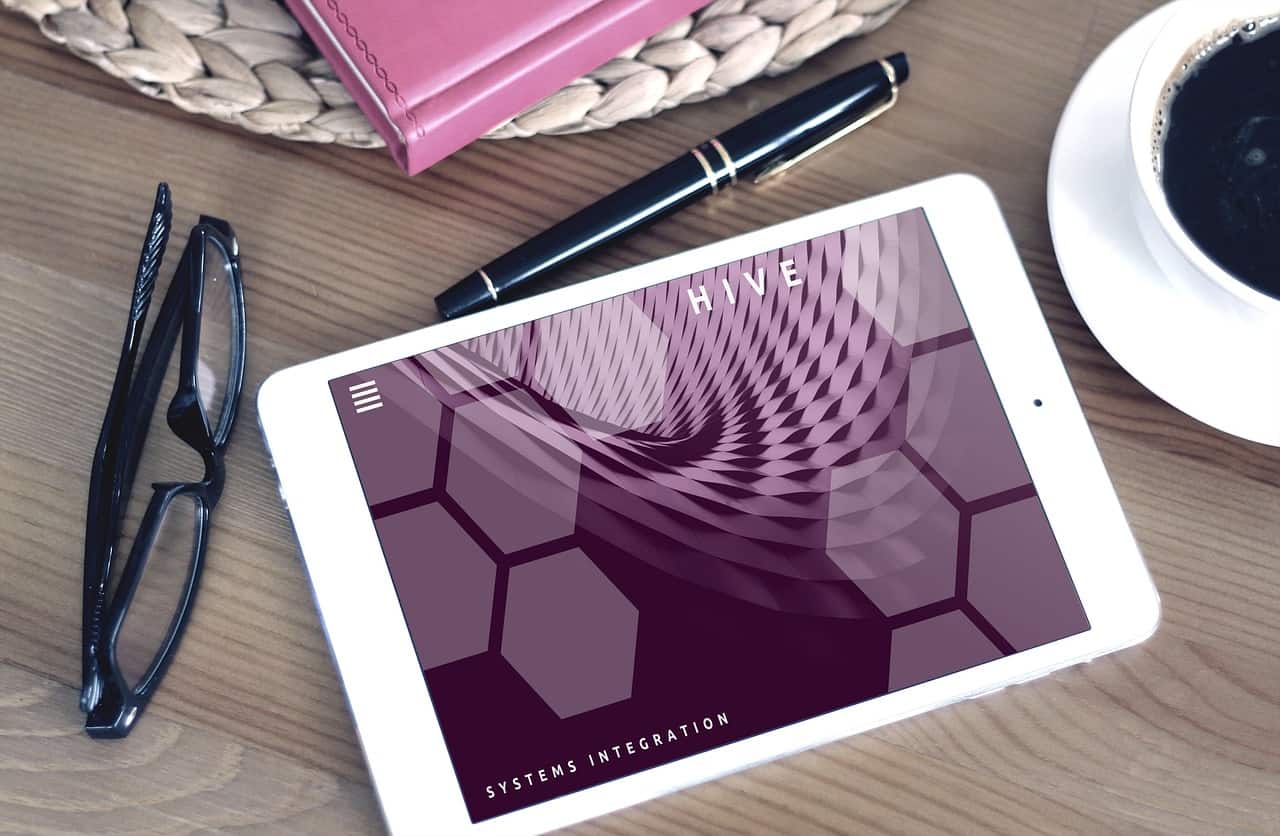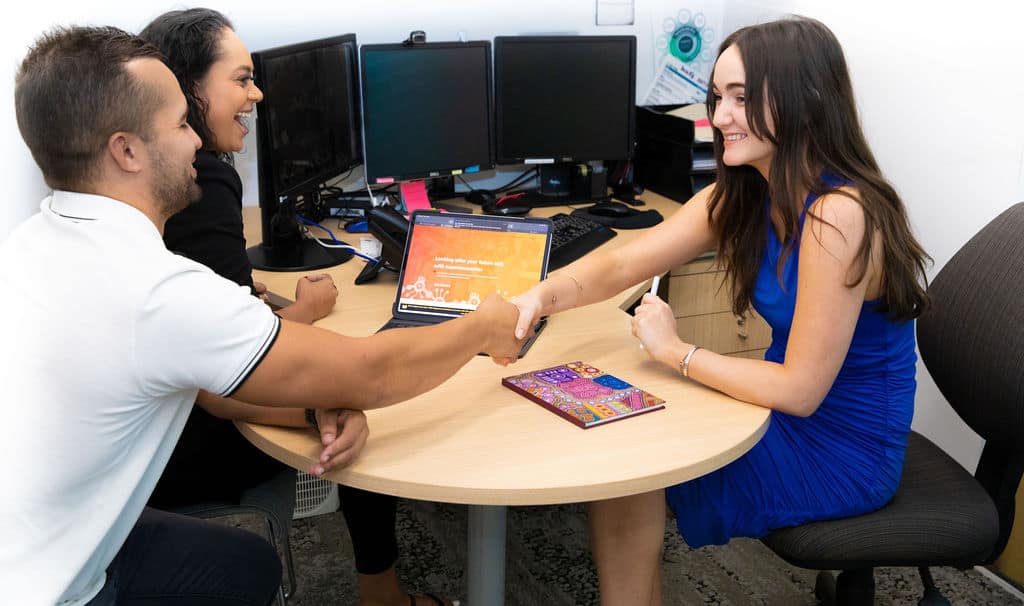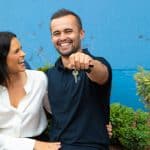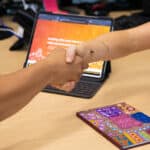How confidence and controlling self-limiting beliefs helped Dixie thrive
Dixie Crawford and Larisha Jerome
- Career & Business, Money Lessons, Womens

Proud Barkindji woman and entrepreneur Dixie Crawford is a woman of many talents. In this conversation with Larisha Jerome, she talks about getting back to Country, overcoming self-limiting beliefs and building confidence in the business world.
This is a modified transcript of an episode of RBW: A podcast sharing Aboriginal and Torres Strait Islander women’s stories. To hear more, visit https://tomorrowmoney.co/women/rbw/
Dixie: My name is Dixie Crawford. I am a Barkindji woman from Brewarrina and Broken Hill in far western New South Wales. I’m a Crawford and a Frail and I am currently living on Ngunawal Country. I am coming to you today from Gadigal land in Sydney.
Larisha: You’re doing a lot at the moment, so tell us a bit what you’re working on right now.
Dixie: I think the question is, what am I not working on? So, I’m a business owner, I own a company called Nganya, which means fire lighter in my Barkindji language. And I guess when you get to know me, you’ll understand why that is the most appropriate word to describe me and my business and the impact that we’re wanting to make and the work that we do with our clients. We specialise in developing reconciliation action plans and facilitating effective community engagement with government agencies and corporate businesses in this country.
Country, confidence and stopping self-limiting beliefs
Larisha: Dixie, you’re known for your confidence and your ‘don’t-hold-back’ attitude when it comes to business. Have you always had this approach or was it something you’ve had to learn along the way?
Dixie: Bit of both, I think, certainly in business. I don’t think anyone knows how to run a business until they’re running a business. So that’s something that I’ve had to develop and become familiar with and flex that muscle around needing to learn and then putting that learning into practice. I’ve always been a straight shooter, a very direct communicator. It’s the women that I’ve grown up with. It’s the community that I’ve come from that has taught me a lot about transparency and robust, uncomfortable conversations. And that’s what I grew up with seeing as a young kid, too, certainly the way that I live into my values of integrity and transparency today as an adult.
Larisha: What role has your connection to country, kinship and spirituality played in your business?
Dixie: It’s probably my guiding my compass, if I’m to be honest. So, I am very much a business owner and a woman that strongly depends on her intuition. And I’ve gotten to that point in my life where I realise now the gut intuition that I have is my ancestors talking to me. It’s my grandmother, it’s my aunties, my uncles, my, you know, it is my culture, it’s my community, it’s my kinship. It’s everyone talking to me through my gut. I’m very much a person that follows her tummy and listens to what that is telling me.
It also keeps me grounded. I think sometimes, in business, you can get a bit ahead of yourself and you can want to move really quickly. I come from a community where it’s the country. Country is slow-paced, it moves at the pace of trust and it moves at the pace of what it needs to.
So, every now and again, when I get a bit too busy or I get a bit overwhelmed, which is quite often sometimes in business because we are growing so quickly at the moment, being able to tap into community and culture and just take a deep breath is something that I truly admire and, you know, I’m starting to really value you as a resource to guide me around what it is that I do and more importantly, what it is that I shouldn’t be doing.
Larisha: What do you do yourself to keep yourself grounded and practise that self-care for yourself?
Dixie: I’ve started to go home a lot more often than I did in the past. I guess the pandemic and what’s been going on in my business in the last couple of years, in terms of growth, has kind of prevented me from doing that. But on the flip side of being able to have that growth in my business, it’s creating opportunities for me to go home more often.
I love the fact that as a result of the pandemic and the flexibility around you can work from anywhere. I can literally go home and work from for two or three weeks if I want to. And that that sense of calmness and being recharged and re-energised, which you get from country, is something that is very helpful within my business.
So, I go home quite often. I also do a lot of Pilates.
Larisha: How do you overcome all of your self-limiting beliefs?
Dixie: I don’t talk to myself and the moment that I do start to have a conversation with myself in my head, I stop real quick. When I say that to people, people would be like, ‘Babe, nobody talks to themselves’. I’m like “Yes, you all, do, we all do.” We all have these internal dialogue conversations, but we talk ourselves either in or out of something.
Usually I think that we are often telling ourselves lies. So I heard someone say, ‘Stop talking to yourself’, and I stopped talking to myself.
I’ll be honest, the confidence and growth that I saw within myself and then also within my business, my relationships, my capacity to be able to push myself beyond the things that I knew that I could do into the things that would make me feel uncomfortable and that had a lot of potential around outcomes for me.
When I started to stop talking to myself and just started doing, things changed. So that’s how I have backed myself and found another way of taking my confidence to a next level was to literally stop talking to myself.
The importance of financial literacy
Larisha: What role does financial literacy have when it comes to creating that generational change in First Nations communities?
Dixie: Financial literacy is really important to me. I’m always happy to give people advice because I don’t think anyone knows how to run a business until they start running a business. I stand by that. You have to learn how no one is going to survive in business unless you have your money, unless you understand money and how you can circulate money in a way that allows you not just to survive, but also to thrive within your business.
I have done a lot of work around understanding economics within a business. And I when I say work, I mean educating myself. I’ve gone to a business masterclass at Melbourne Business School. I’ve done some of the First Nations Foundation’s classes around money and about wealth creation and about sustainability. I’ve read books. I’ve listen to podcasts. I have invested in that because I don’t ever want to go back and work for someone where there isn’t an alignment in values and impact that we want to make.
I want to do my business for the rest of my life, but in order to do that, I have to have money because money makes the world go around and money means that I have the opportunities to be able to live the life that I want.
So, financial literacy has been crucial for me to survive in business, but also to live the life that I want to, to circulate money within my community, to give back to the things that I want to do.
So, we need to be across profit and loss statements, we need to be across the rates that we’re charging people, tax and super and the operations of a business, including insurances and all of these type of things.
You cannot run a business, a successful business without understanding how money works within that business, but also how to make money work for your business.
Let us know if you liked this article
Let us know if you liked this article






